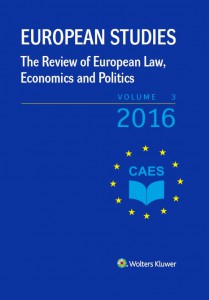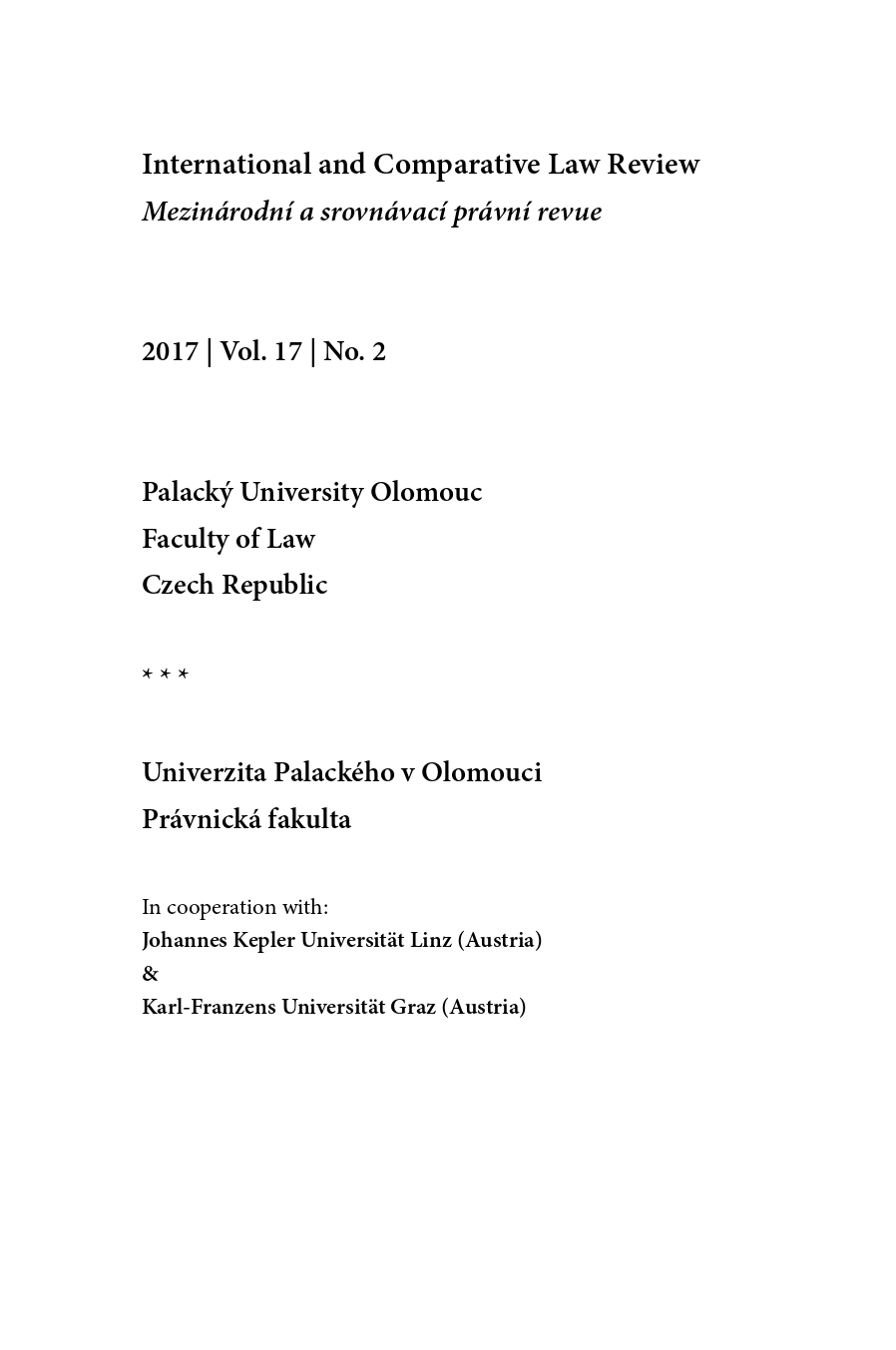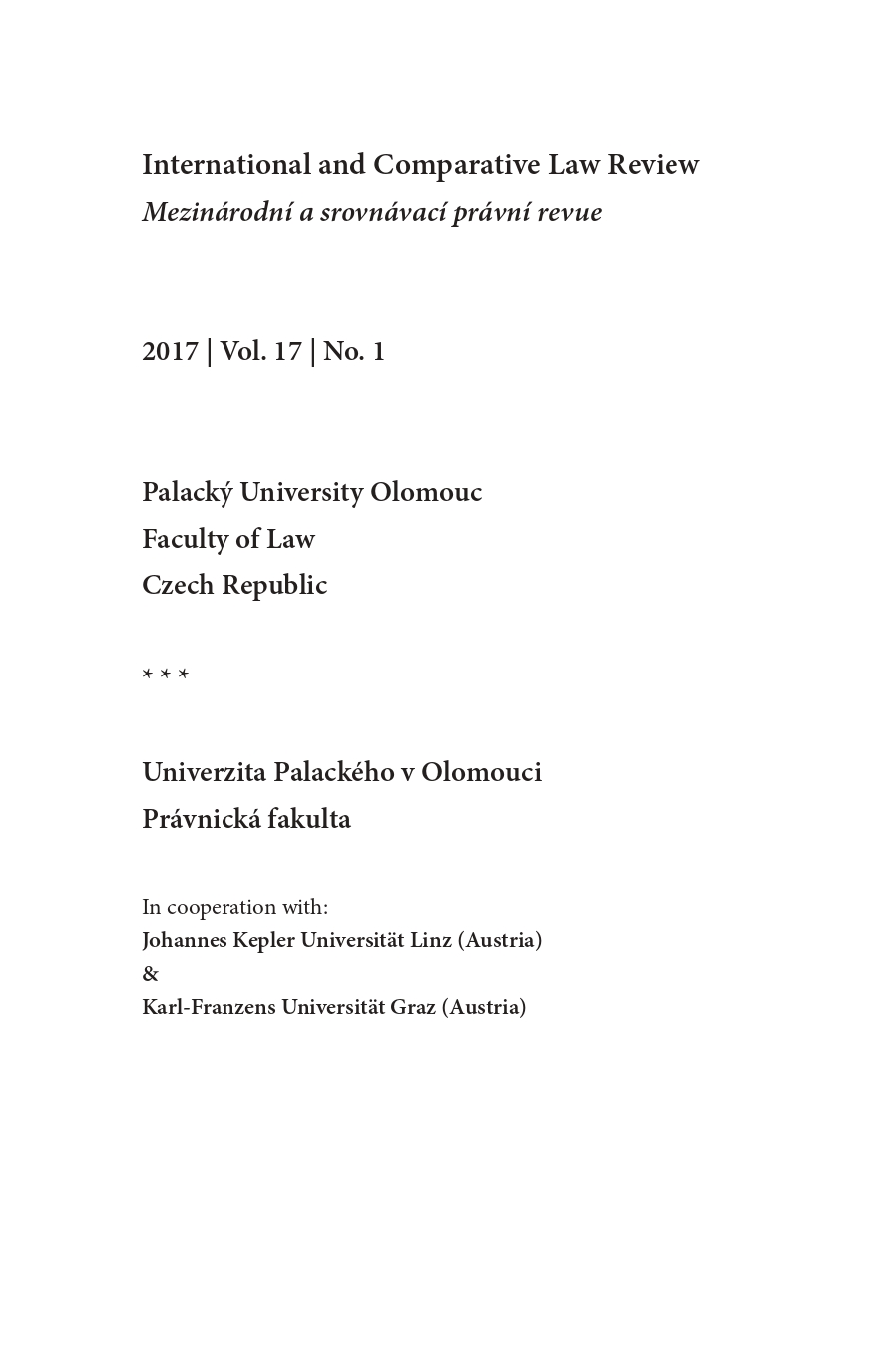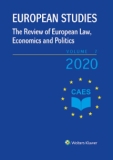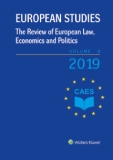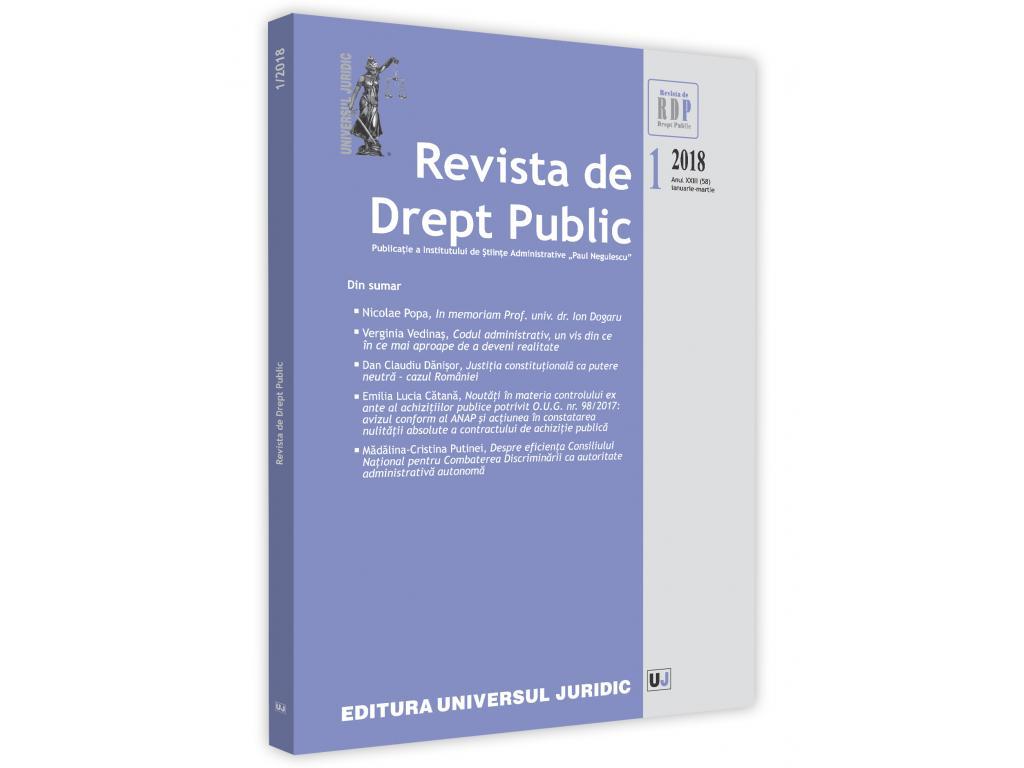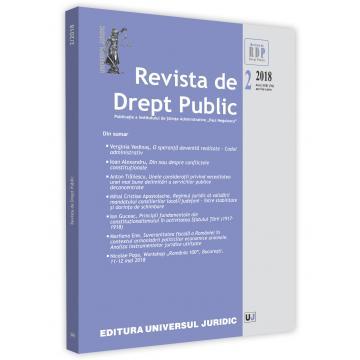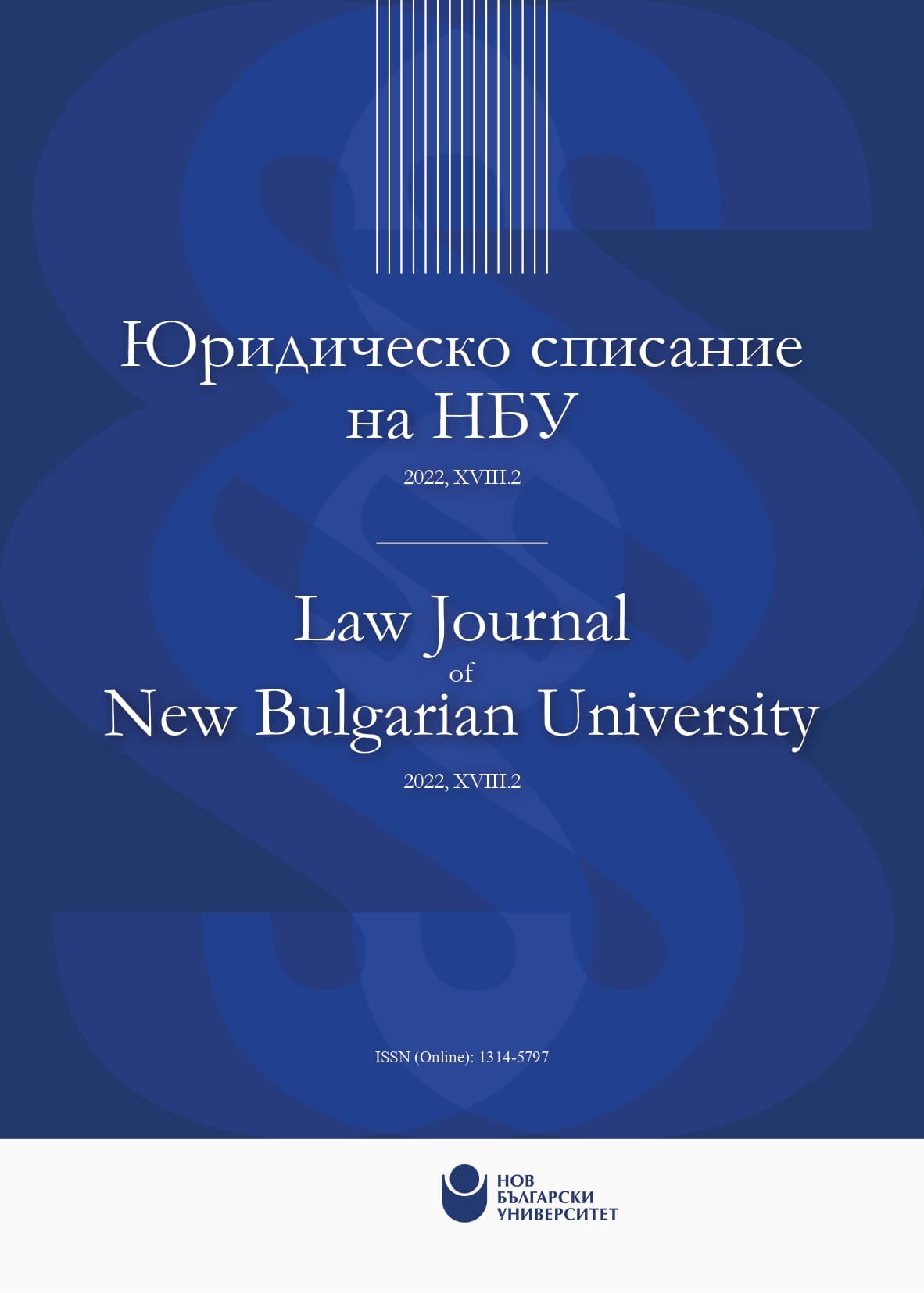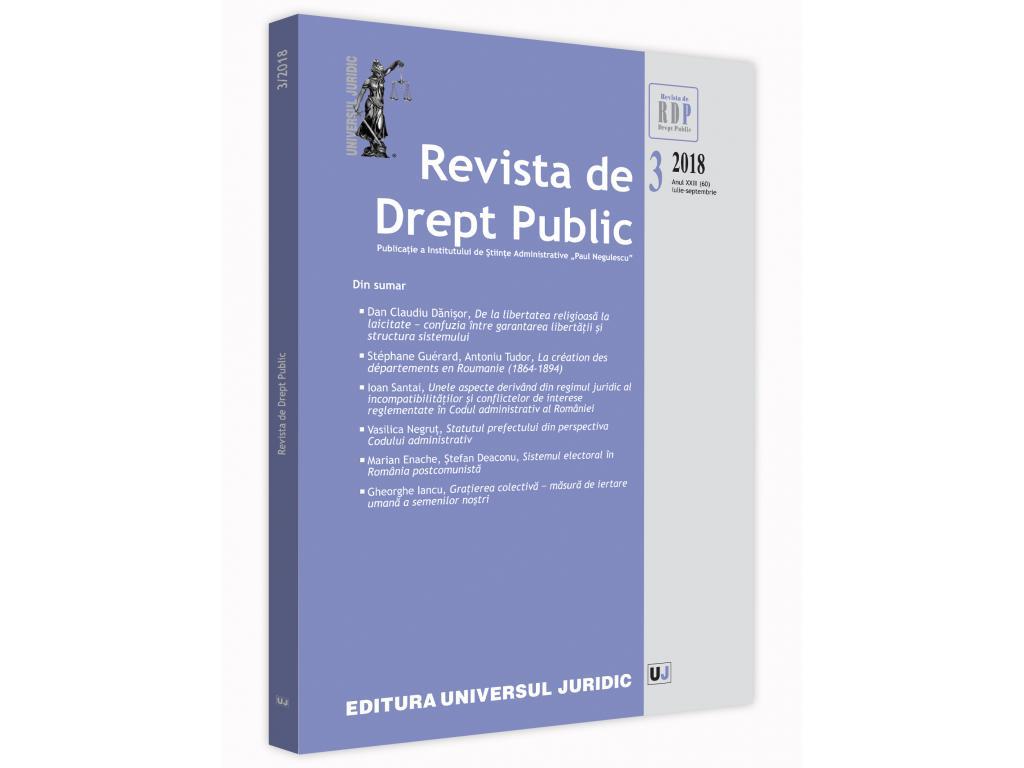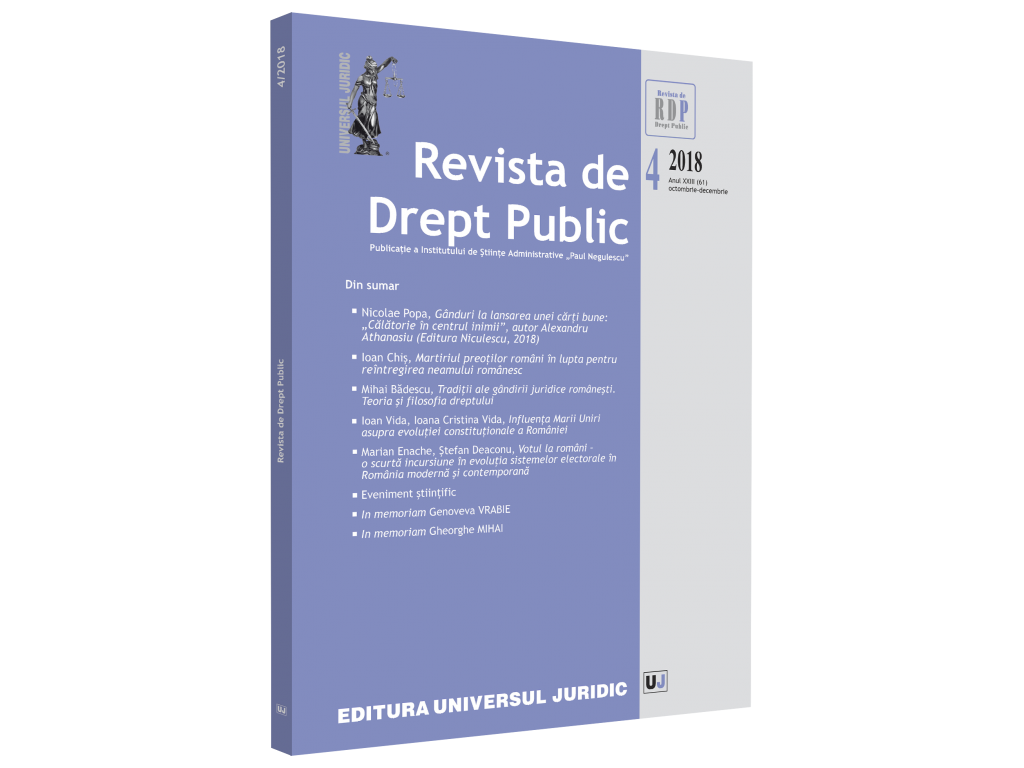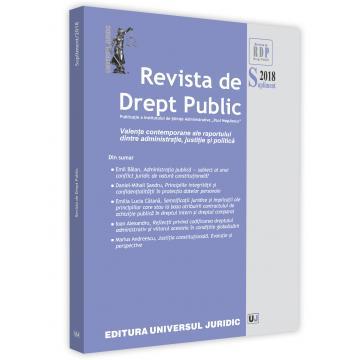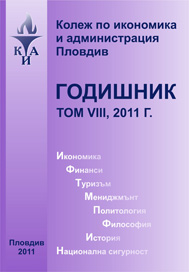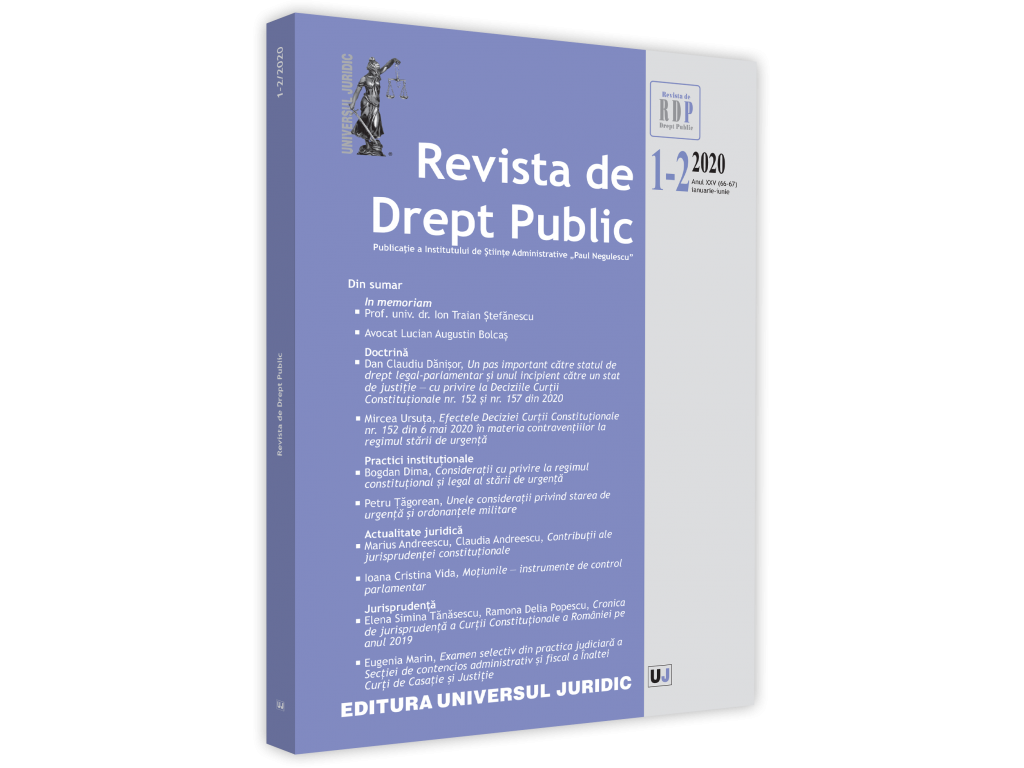Author(s): Alina Livia Nicu / Language(s): Romanian
Issue: Supliment/2018
As the subsequent evolution of social relationships has already been demonstrated, the time of 22 December 1989 represented the start point of a rather difficult process and of a long time period during which each of the Romanian social and political systems acquired a new definition. From its very first Article the earliest form of the fundamental law based on which the new architecture of the state was to be built, stated the clarification that: “Romania is a democratic and social rule of law”1. Thus, the law became a means by which the fundamental values of the Romanian people were proclaimed and at the same time guaranteed. Since then, the practical exercise of social life mandatorily required the revision of the Constitution of Romania in 2003. In each of its citizens’ existence, the place and, respectively, the importance acquired by the legal rule were dealt with in detail from the introduction of a fifth paragraph in the text of the first article, where the assertion was stated of the fact that: “the respect for the Constitution, for its supremacy and for laws shall be mandatory”. Since 1991, the constitutional legislature established means by which the respect for the principle of lawfulness should be guaranteed. One from among said means was represented by the institution of the Prefect 2 whose role undertaken was that of “authority ensuring that the activity carried on by the local autonomous bodies should be maintained strictly within the limits of the law, a role which the legal literature describes by making use of the established phrase of administrative control”3. The importance acquired by the institution of the Prefect and by the administrative control, respectively, is also well illustrated by the way in which the letter of the Constitution has evolved: hence, the legislature took into consideration in so far as a necessity, the fact of stating under article 123 the third paragraph, the following rule according to which the law establishing the powers incumbent upon the Prefect must necessarily be privileged by the organicity nature4. As a procedural tool made available to the natural person, as well as to the legal entity for the purpose of re-establishing the lawfulness of some situation in the case where one or more of its rights or legitimate interests were affected by the exercise of any authority, the administrative proceedings would also be ruled according to an organic law. This involves express provisions regarding administrative control: the article setting forth that the Prefect “may challenge” before the administrative courts “the documents delivered by the local public administration authorities in the case it deemed them illegal”. The phrase “may challenge” was already inserted in the fourth paragraph of article 122 of the Constitution of 1991, and it has been maintained so far, as well, in the text of the fifth paragraph of article 123 of the Constitution of Romania. In the context where the civil society has constantly declared the need to depoliticize the administration and the Romanian Parliament has continuously strived in achieving this need by issuing various regulations, among which Law no. 340/2004 on the institution of the Prefect represents an eloquent example in this regard, because due to this law the Prefect would have become a senior public official, the purpose of this study consisting in the examination of the extent to which the framework of lawfulness being currently into force, provides for an actual depoliticization of the institution of the Prefect and even if this was the role which the Prefect had to fulfil and consisted in guaranteeing the compliance with the principle of lawfulness by the local public administration authorities, is it really fulfilled? For the purpose of carrying out this examination, we made use of the following means: the study of the legal literature and of the case law, as well as a thorough documentary research. The conclusions of this paper insist upon the topic related to the improvement of the legal framework in the matter concerned and formulate suggestions de lege ferenda, as well.
More...
